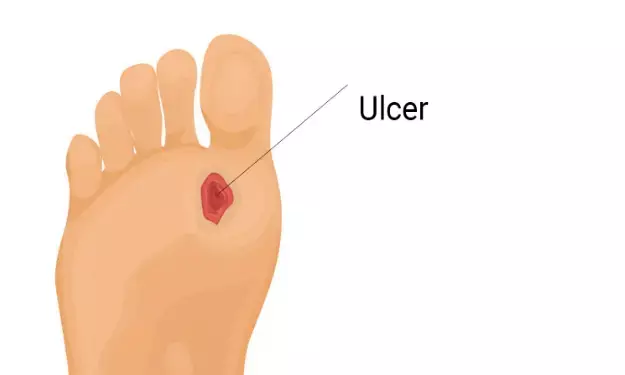- Home
- Medical news & Guidelines
- Anesthesiology
- Cardiology and CTVS
- Critical Care
- Dentistry
- Dermatology
- Diabetes and Endocrinology
- ENT
- Gastroenterology
- Medicine
- Nephrology
- Neurology
- Obstretics-Gynaecology
- Oncology
- Ophthalmology
- Orthopaedics
- Pediatrics-Neonatology
- Psychiatry
- Pulmonology
- Radiology
- Surgery
- Urology
- Laboratory Medicine
- Diet
- Nursing
- Paramedical
- Physiotherapy
- Health news
- Fact Check
- Bone Health Fact Check
- Brain Health Fact Check
- Cancer Related Fact Check
- Child Care Fact Check
- Dental and oral health fact check
- Diabetes and metabolic health fact check
- Diet and Nutrition Fact Check
- Eye and ENT Care Fact Check
- Fitness fact check
- Gut health fact check
- Heart health fact check
- Kidney health fact check
- Medical education fact check
- Men's health fact check
- Respiratory fact check
- Skin and hair care fact check
- Vaccine and Immunization fact check
- Women's health fact check
- AYUSH
- State News
- Andaman and Nicobar Islands
- Andhra Pradesh
- Arunachal Pradesh
- Assam
- Bihar
- Chandigarh
- Chattisgarh
- Dadra and Nagar Haveli
- Daman and Diu
- Delhi
- Goa
- Gujarat
- Haryana
- Himachal Pradesh
- Jammu & Kashmir
- Jharkhand
- Karnataka
- Kerala
- Ladakh
- Lakshadweep
- Madhya Pradesh
- Maharashtra
- Manipur
- Meghalaya
- Mizoram
- Nagaland
- Odisha
- Puducherry
- Punjab
- Rajasthan
- Sikkim
- Tamil Nadu
- Telangana
- Tripura
- Uttar Pradesh
- Uttrakhand
- West Bengal
- Medical Education
- Industry
Case report of non-healing diabetic foot ulcers treated with Amniotic membrane

Placental amniotic membranes are composed of cells, extra-cellular matrix (ECM), and a complex of regulatory cytokines which promote cell proliferation, cell modulation, and cytokine secretion by variety of cell types involved in wound healing.
However, diabetic ulcer of the foot is a major cause of morbidity and is a leading cause of hospitalization in patients with diabetes, and causes productivity and financial losses that lower the quality of life of the patient. The wound is categorized as responsive and unresponsive wound, which occurs in debilitated patients as seen in diabetes mellitus. Unresponsive diabetic ulcer is ulcer that does not reduce in size within a month. The delay in wound repair can be caused by senescent cells, absence of growth factors, and other cellular abnormalities.
Therefore, the authors studied a retrospective, single-center case series with non-consecutive cases. Patients with diabetic ulcer of the foot managed using gamma-treated placental amniotic membrane, with the minimum follow up of 1 month in academic practice setting were included in the data.
Three patients with 4 weeks period of oozing ulcers and signs of inflammation were included in this case series. Two layers of amniotic membrane dressing was applied weekly after cleaning and debridement for 3 weeks. Wound size and secretion were documented by taking photographs every week. At the end of the third week, complete wound healing was observed, revealed Oesman.
Our study showed that the treatment of diabetic ulcer wound using amniotic membrane was successful in achieving wound healing in unresponsive, chronic wound of diabetic ulcer of the foot, he further added.
As a result, the authors concluded that "the application of amniotic membranes in treatment of diabetic ulcer of the foot is useful. Amniotic membrane favored healing of unresponsive and non-healing ulcers."
Dr. Nandita Mohan is a practicing pediatric dentist with more than 5 years of clinical work experience. Along with this, she is equally interested in keeping herself up to date about the latest developments in the field of medicine and dentistry which is the driving force for her to be in association with Medical Dialogues. She also has her name attached with many publications; both national and international. She has pursued her BDS from Rajiv Gandhi University of Health Sciences, Bangalore and later went to enter her dream specialty (MDS) in the Department of Pedodontics and Preventive Dentistry from Pt. B.D. Sharma University of Health Sciences. Through all the years of experience, her core interest in learning something new has never stopped. She can be contacted at editorial@medicaldialogues.in. Contact no. 011-43720751
Dr Kamal Kant Kohli-MBBS, DTCD- a chest specialist with more than 30 years of practice and a flair for writing clinical articles, Dr Kamal Kant Kohli joined Medical Dialogues as a Chief Editor of Medical News. Besides writing articles, as an editor, he proofreads and verifies all the medical content published on Medical Dialogues including those coming from journals, studies,medical conferences,guidelines etc. Email: drkohli@medicaldialogues.in. Contact no. 011-43720751


